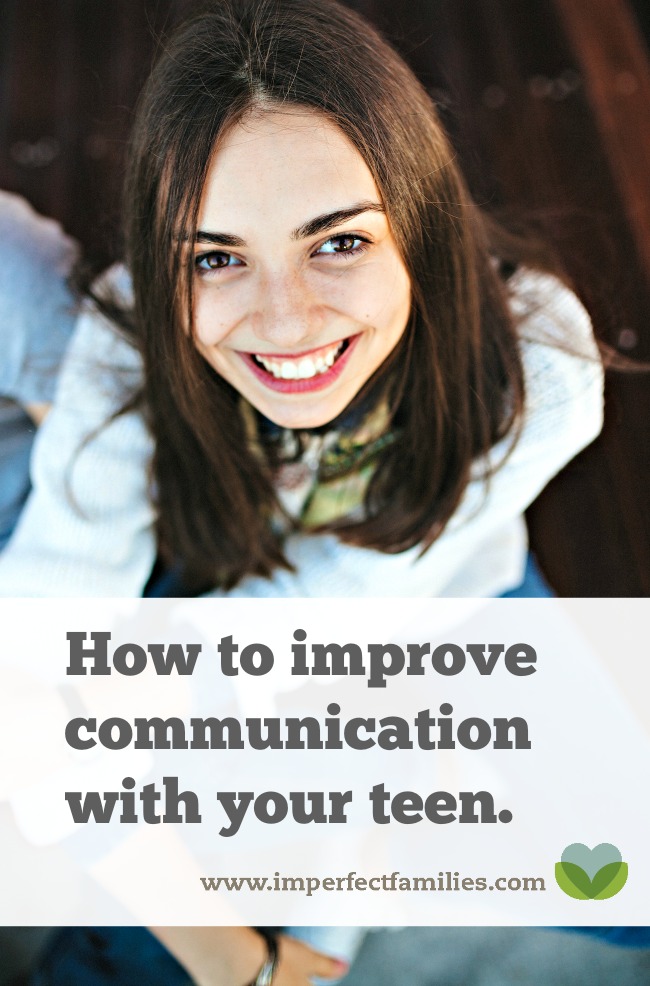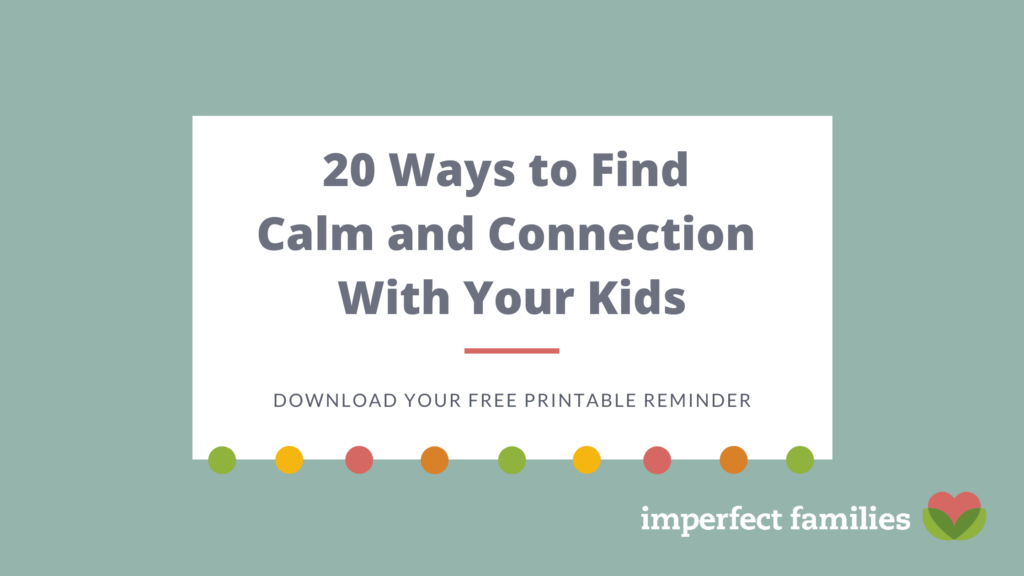
Sitting with a teenage client and her family in my therapy office, she declares:
“My parents just don’t understand!”
Digging a little deeper, I ask, “What would help you feel like they understood you?”
She snaps back, “If they would just listen to me!”
On the defense, her mom responds, “What do you mean?! I listen to you all day long!”
Her dad quickly adds, “If she would just pull her earbuds out once in a while, maybe she’d hear me trying to talk with her!”
It’s a story that is repeated again and again in my sessions — communication challenges, arguments, and misunderstandings all lead to a break in the relationship.
But, the underlying message stays the same: Kids feel understood when their parents listen.
I mean really listen.
Bridging this gap, and learning how to improve communication with your teen is no small feat, but it can be done.
Listening Tips for Parents.
Here are some general tips:
- Watch Your Non-Verbals: Nothing says, “There are other things I’d rather be doing” or “I can’t believe you’re even talking about this” like an eye-roll or a huge sigh. You don’t have to agree with everything your child says, but be aware that your body language may be sending an unintended message.
- Skip the Witty Comeback: Focus on listening to what your child is saying, rather than formulating your “…yeah, but…” or “when I was a kid…” response. Critical, sarcastic or belittling remarks bring communication to a halt. Keep your remarks and snide comments to yourself.
- Seek Clarity Before You Pass Judgment: If you’re caught off-guard or a little confused by something your child said, rephrase their general idea. You can say, “What I hear you saying is…” or “Let me see if I have this right.” Give your child a chance to correct your interpretation.
- Be Empathetic: This one tip can magically transform communication because it conveys the message, “I get why this is hard for you.” Put yourself in your child’s shoes. How would you feel? How would you like someone to respond? You don’t have to agree to understand how they may be feeling.
- Wait to Reply: Resist the urge to interrupt, offer a solution or give a jump to conclusions. Give your child time to finish what they are saying. Then, take a deep breath and allow yourself some time to figure out how you want to respond and the best way to say it.
- Do Not Fix It: Most of the time, your kids just need to vent, they are not looking for a way to solve the problem. If your child comes to you requesting advice, engage them in the problem-solving process. If you’re unclear ask, “Do you want my advice or do you want me just to listen?”
- Talk Less: When in doubt, be quiet. It is ok to offer your opinion or ask a few questions, but a conversation can quickly turn into a lecture. If you feel like you’re talking too much, interrupting, or feel like your child is shutting down, STOP. Say, “Oops, I’m talking too much. Tell me more about…”
I realize that these suggestions may leave you feeling limited. It may seem like there is no place for you to be a parent, to “set them straight,” or to disagree.
Actually, once your child feels heard and understood, they are much more open to hearing your thoughts, feelings or opinions. Believe it or not, many kids and teens are capable of having a respectful, decent conversation – even about tough topics!
And, while it may not be an overnight transformation, changing the way you listen on a regular basis should get your child’s attention.
After working on communication as a family for a while, the teenage daughter gives me an update, “I don’t know what you told my parents to do, but I like it!”
That’s the sign of a child who feels understood and parents who understand how to listen.
Kids ignoring you? Fed up with arguments?
Coming Soon: Communication for Imperfect Families
An Imperfect Families eCourse
Learn to build an atmosphere of respect and love in your home.
Sign Up Now & you'll be the first to know more details on the course!
By signing up to receive more information, you agree to my Disclosure and Privacy Policy.



Comments have been turned off to retain the privacy of all families. If you have a question or comment on the topic, you're always welcome to contact me.